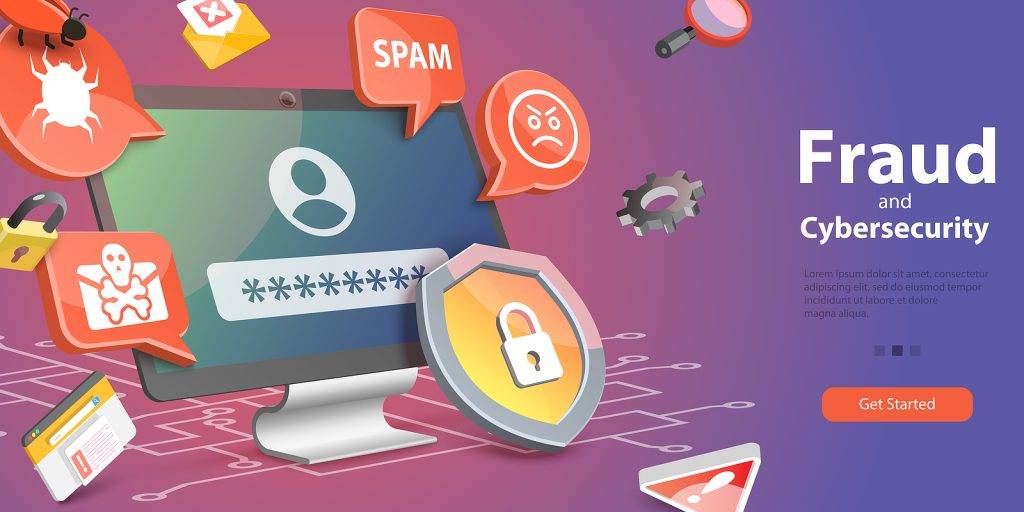As technology advances rapidly, artificial intelligence (AI) has become an increasingly popular topic of conversation. AI transforms our lives and works, from virtual assistants to self-driving cars. However, with its rise in popularity comes a darker side – AI scams.
These clever schemes prey on unsuspecting individuals, tricking them into revealing sensitive information or falling victim to financial fraud. This article will explore the world of AI scams, how they work, and, most importantly, how to protect yourself from becoming their next target. So buckle up and stay vigilant as we delve into deceptive algorithms and digital deception!
Table of Contents
The Rise of AI Scams And How They Work
The rise of AI scams is becoming a concerning trend in the digital landscape. With the increasing popularity of artificial intelligence, scammers are constantly finding new ways to exploit unsuspecting individuals for their personal information and financial gain.
These scams often involve tricking people into believing they are interacting with an advanced AI system or technology when, in reality, it’s all a clever ruse. One common type of AI scam involves fake tech support calls, where scammers impersonate reputable companies and offer assistance with computer or software issues. They often request remote access to your device or payment for their services, only to steal your data or money.

Another popular tactic is phishing emails that appear to be from legitimate organizations but contain malicious links or attachments. These emails often use sophisticated language and design elements to convince recipients to take immediate action. Once clicked on, these links can lead users to fake websites that capture login credentials or install malware onto their devices.
Unfortunately, many people have fallen victim to these AI scams. In one instance, a woman received a call from someone claiming they were an AI-powered assistant from her bank seeking verification details. Trusting the advanced technology behind it all, she provided sensitive information, leading to identity theft and financial loss.
Top 5 Ways To Protect Yourself From AI Scams
- Always be cautious about sharing personal information online.
- Avoid clicking on unknown links or downloading files from unknown sources.
- Double-check the legitimacy of any communication you receive before taking action.
- Keep your devices updated with the latest security patches and antivirus software.
- Educate yourself about different types of scams to better recognize them when encountered.
By staying vigilant and informed about these AI scams, we can help protect ourselves against potential threats lurking in the digital world!
Common Types of AI Scams
One common AI scam that has become increasingly prevalent is the fake tech support scam. In this scheme, scammers pose as technical support representatives from reputable companies and contact individuals via phone or email. They claim a problem with the person’s computer or software and offer to fix it remotely for a fee.
However, these scammers are not affiliated with any legitimate company. Their sole intentions are to gain access to personal information, extract money, or both.
Another thing to remember that legitimate companies will not ever ask for sensitive information via email or phone calls out of nowhere. If you receive an unsolicited request asking for personal details, it’s best to independently verify its authenticity before responding.
With the increasing popularity of AI technology, it’s no surprise that scammers are finding new ways to exploit it. To stay safe and avoid falling victim to AI scams, remember some essential tips.
First and foremost, be cautious when clicking on unkown links or downloading attachments from unfamiliar sources. Scammers often use misleading emails or messages to trick you into giving them access to your personal information or computer system. If something seems suspicious, trust your instincts and avoid clicking on any questionable links.
Verifying the source of any communication is also crucial in protecting yourself from AI scams. Refrain from trusting every email or message claiming to be from a reputable company or organization. Take the time to independently verify their legitimacy through official channels such as their website or the number on the back of your credit card.

Another important tip is to keep sensitive information private over secured networks. Scammers can easily intercept data transmitted over public Wi-Fi networks, so avoid accessing personal accounts or conducting financial transactions while connected to these unsecured networks.
Additionally, keeping your devices and software up-to-date with the latest security patches is a good product like Bitdefender is essential in preventing AI scams. Hackers often target vulnerabilities in outdated systems, so regularly updating your operating system and applications adds an extra layer of protection against potential threats.
Educate yourself about standard AI scam techniques by staying informed through reliable sources such as cybersecurity blogs and news outlets. Understanding how scammers operate can help you recognize red flags and protect yourself against potential attacks.
Following these tips and remaining vigilant online can dramatically reduce the risk of falling victim to AI scams and safeguard your personal information and digital assets.
What To Do If You Think You Are A Victim of an AI Scam
If you have unfortunately fallen victim to an AI scam, it is crucial to take immediate action to minimize the damage. Here are some steps you should consider taking:
- Disconnect from the source: As soon as you realize you’ve been scammed, disconnect your device from the internet. This will really help prevent any further unauthorized access or data breaches.
- Report the scam: Inform your local authorities about what happened. They may direct you to specialized cybercrime units or fraud departments that can investigate the incident and potentially catch those responsible.
- Inform your bank or credit card company: If financial information was compromised during the AI scam, it’s vital to report it immediately to your bank or credit card company. They can freeze your accounts and help mitigate any fraudulent charges.
- Change passwords and secure accounts: Update your passwords for online personal and financial information accounts. Enable two-factor authentication whenever it is possible for added security.
- Monitor accounts regularly: Keep a close eye on your financial statements, suspicious transactions, emails, and other activities that could indicate ongoing fraudulent activity related to the AI scam.
- Educate yourself about scams: Take this unfortunate experience as an opportunity to educate yourself on different types of scams circulating online – including AI scams – to recognize warning signs in the future and protect yourself better.
Remember, being proactive is vital when dealing with the aftermath of an AI scam! Taking these steps promptly after falling victim to such a scheme increases your chances of minimizing any potential long-term consequences.

Remain vigilant and Informed to Avoid AI Scams
As the world increasingly is headed towards artificial intelligence, it’s no surprise that scammers are finding new means to exploit this technology for their gain. AI scams have become prevalent, targeting unsuspecting individuals with sophisticated tactics designed to deceive and manipulate.
To protect yourself from falling prey to AI scams, it’s essential to remain vigilant and informed. Be cautious when clicking on all and, of course, any suspicious links, even from friends, as they may have been hacked or downloaded unfamiliar software. Always verify the source before providing any personal or financial information online.
Protecting yourself from AI scams requires ongoing awareness and caution in our increasingly connected world. By staying informed about emerging threats and implementing robust security measures, we can minimize our risk of becoming victims of these deceptive schemes. Remember: trust but verify to stay safe online!
Read more – How Global Financial Regulation Is Keeping Up With The Digital Era








